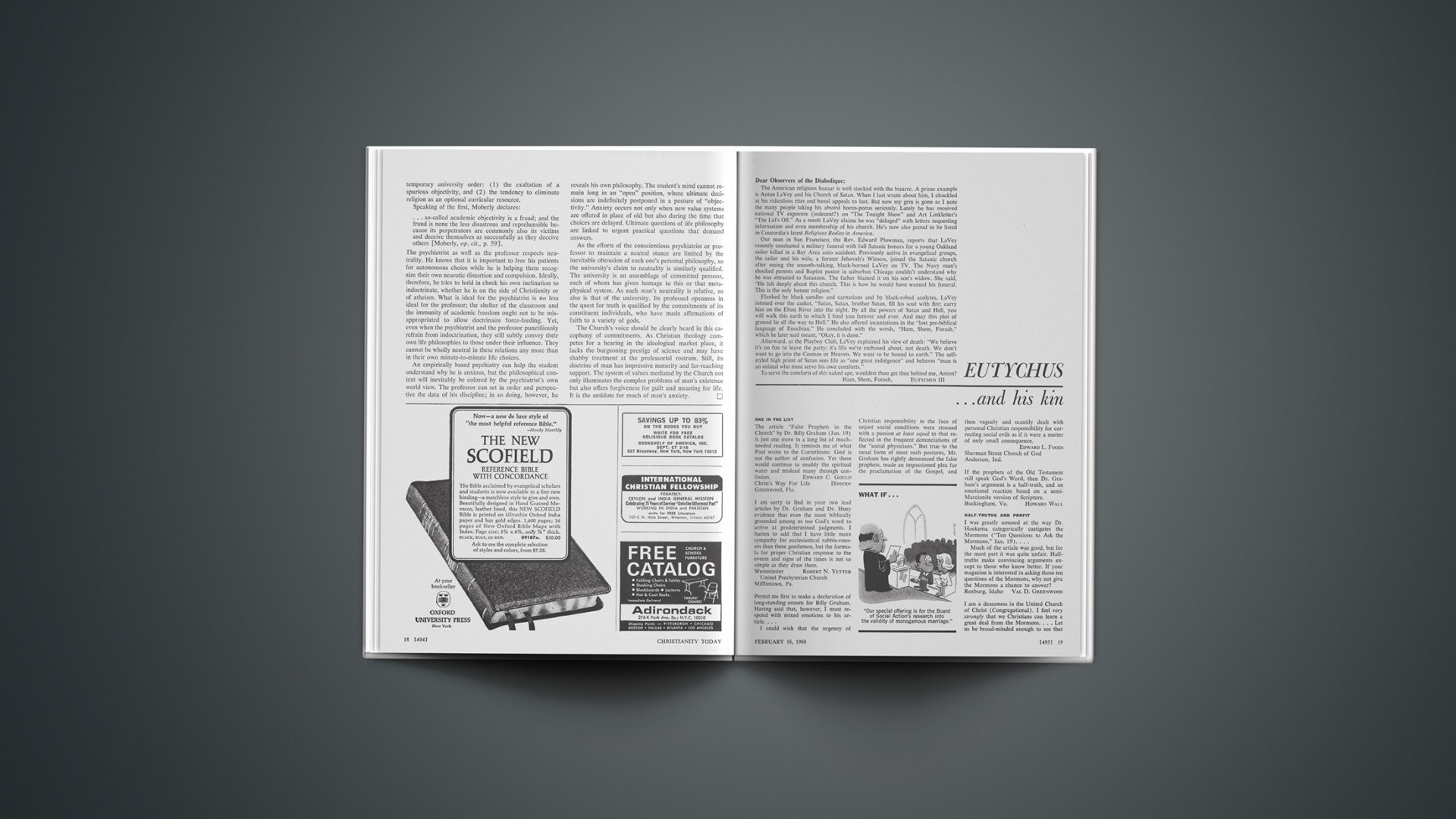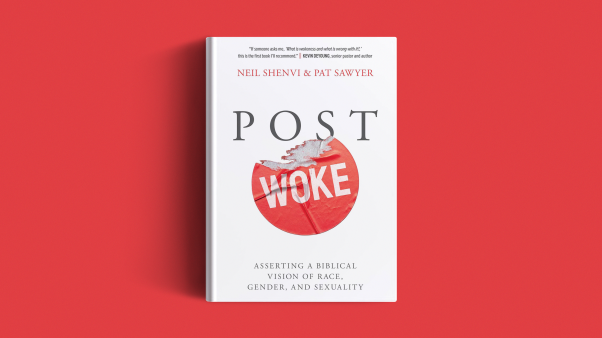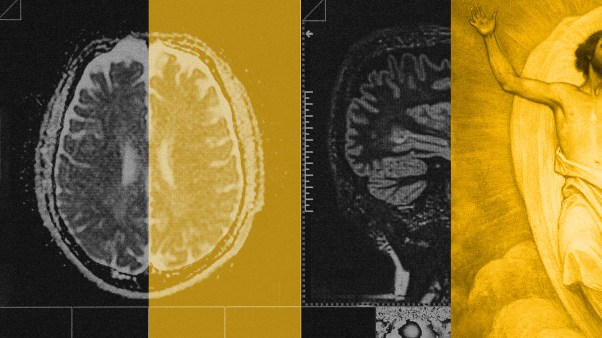Dear Observers of the Diabolique:
The American religious bazaar is well stocked with the bizarre. A prime example is Anton LaVey and his Church of Satan. When I last wrote about him, I chuckled at his ridiculous rites and banal appeals to lust. But now my grin is gone as I note the many people taking his absurd hocus-pocus seriously. Lately he has received national TV exposure (indecent?) on “The Tonight Show” and Art Linkletter’s “The Lid’s Off.” As a result LaVey claims he was “deluged” with letters requesting information and even membership of his church. He’s now also proud to be listed in Concordia’s latest Religious Bodies in America.
Our man in San Francisco, the Rev. Edward Plowman, reports that LaVey recently conducted a military funeral with full Satanic honors for a young Oakland sailor killed in a Bay Area auto accident. Previously active in evangelical groups, the sailor and his wife, a former Jehovah’s Witness, joined the Satanic church after seeing the smooth-talking, black-horned LaVey on TV. The Navy man’s shocked parents and Baptist pastor in suburban Chicago couldn’t understand why he was attracted to Satanism. The father blamed it on his son’s widow. She said, “He felt deeply about this church. This is how he would have wanted his funeral. This is the only honest religion.”
Flanked by black candles and carnations and by black-robed acolytes, LaVey intoned over the casket, “Satan, Satan, brother Satan, fill his soul with fire; carry him on the Ebon River into the night. By all the powers of Satan and Hell, you will walk this earth to which I bind you forever and ever. And may this plot of ground lie all the way to Hell.” He also offered incantations in the “lost pre-biblical language of Enochian.” He concluded with the words, “Ham, Shem, Forash,” which he later said meant, “Okay, it is done.”
Afterward, at the Playboy Club, LaVey explained his view of death: “We believe it’s no fun to leave the party; it’s life we’re enthused about, not death. We don’t want to go into the Cosmos or Heaven. We want to be bound to earth.” The self-styled high priest of Satan sees life as “one great indulgence” and believes “man is an animal who must serve his own comforts.”
To serve the comforts of this naked ape, wouldest thou get thee behind me, Anton?
EUTYCHUS III
Ham, Shem, Forash
ONE IN THE LIST
The article “False Prophets in the Church” by Dr. Billy Graham (Jan. 19) is just one more in a long list of much-needed reading. It reminds me of what Paul wrote to the Corinthians: God is not the author of confusion. Yet these would continue to muddy the spiritual water and mislead many through confusion.
EDWARD C. GOULD
Director
Christ’s Way For Life
Greenwood, Fla.
I am sorry to find in your two lead articles by Dr. Graham and Dr. Huey evidence that even the most biblically grounded among us use God’s word to arrive at predetermined judgments. I hasten to add that I have little more sympathy for ecclesiastical rabble-rousers than these gentlemen, but the formula for proper Christian response to the events and signs of the times is not so simple as they draw them.
ROBERT N. YETTER
Westminster United Presbyterian Church
MifHintown, Pa.
Permit me first to make a declaration of long-standing esteem for Billy Graham. Having said that, however, I must respond with mixed emotions to his article.…
I could wish that the urgency of Christian responsibility in the face of unjust social conditions were stressed with a passion at least equal to that reflected in the frequent denunciations of the “social physicians.” But true to the usual form of most such postures, Mr. Graham has rightly denounced the false prophets, made an impassioned plea for the proclamation of the Gospel, and then vaguely and scantily dealt with personal Christian responsibility for correcting social evils as if it were a matter of only small consequence.
EDWARD L. FOGGS
Sherman Street Church of God
Anderson, Ind.
If the prophets of the Old Testament still speak God’s Word, then Dr. Graham’s argument is a half-truth, and an emotional reaction based on a semi-Marcionite version of Scripture.
HOWARD WALL
Buckingham, Va.
HALF-TRUTHS AND PROFIT
I was greatly amused at the way Dr. Hoekema categorically castigates the Mormons (“Ten Questions to Ask the Mormons,” Jan. 19).…
Much of the article was good, but for the most part it was quite unfair. Half-truths make convincing arguments except to those who know better. If your magazine is interested in asking those ten questions of the Mormons, why not give the Mormons a chance to answer?
VAL D. GREENWOOD
Rexburg, Idaho
I am a deaconess in the United Church of Christ (Congregational). I feel very strongly that we Christians can learn a great deal from the Mormons.… Let us be broad-minded enough to see that we can profit by the way of life of these wonderful Mormon people. After all, who can be sure of theology?
MRS. LESTER W. COOCH
Abington, Mass.
THANKS TO SCHOLARS
I was sitting down when I read Mr. Lowell Raymond’s recent article, “For an Effective Ministry” (Jan. 19), but it had an effect which left me standing and fuming.
I’m a seminary graduate. The place mat he referred to just might be my alma mater (California Theological Seminary, Covina, California). Even though I may not have published one of those “erudite editions,” I thank God there are dedicated scholars today who still find the necessary time and discipline to “preach the Gospel” through this medium. As a student, scholars gave me my theological foundation. Now, as a pastor, their books keep me current on many matters (including personal evangelism) and in a sense in “seminary” while pastoring.
SAM HOCHSTATTER
First Baptist Church
Phoenix, Ariz.
INTELLECTUALS OPTING OUT?
The review of Bishop Robinson’s Exploration into God (Jan. 19) prompts this letter.…
In all probability the answer to the question I shall pose is more than obvious. But as a “garden variety” parish minister who must present “plain Christianity to plain folks” (if I may paraphrase my denominational mentor John Wesley) and who has trouble spelling “existential,” never name understanding it and its employment by Bultmann, who just doesn’t quite tune in on Bonhoeffer’s “religionless Christianity,” and who feels that “ground of being” is a terribly unattractive description of the divine (take a breath now), I ask: Why are so many men endowed with intellectual equipment in goodly quantity engaged in rewriting Christianity rather than interpreting it? Why are so many preferring the course of changing the message to fit the desires of modern sophisticated minds (self assumed) rather than making clear to the modern mind what the basic Gospel is?
Is the answer that it is an exercise in opting out from under the judgment of a Gospel they cannot stand? Or is the matter more complex than that?
RICHARD NOBLE
First Methodist Church of Marinette
Marinette, Wis.
OBSTACLES IN ‘OBSTACLES’
As a Catholic who generally admires your magazine for its defense of traditional Christianity, I would like to make a few comments concerning “Obstacles to Belief Within the Church of Rome” (Jan. 5).
First of all, Mr. Fortier should recognize the fact that a great many converts to the Catholic Church consider that they were led there by “the liberating light of Truth,” and they have found precisely what they feel to be Christian liberty within the Church.
Further, Catholics certainly have “direct personal access to the merciful Saviour,” and they are quite accustomed to falling at Christ’s feet to confess their sinfulness. This is what they do in sacramental confession, and in their private prayers.…
I must explain, however, that when I use the word “Catholic,” I refer to the devout, believing Catholic, and not to the nominal Catholic who has adopted a secularistic view much like that of the liberal Protestants. The believing Catholic knows Christ died for him personally; he does accept Christ as his Saviour; and he looks forward to eternal life.
E. O. PERRET
Jeanerette, La.
Although Mr. Fortier exhibits a certain understanding of the Catholic personality, what I find disturbing is his suggestion that Catholics are not saved.…
Just because the Catholics have a special attachment to authoritarian church structures and to statues, rosary beads, holy water, and incense does not mean that Catholics necessarily reject Christ’s Saviourhood or are as yet unsaved—as Mr. Fortier seems to say.…
The greatest challenge to Protestant evangelicals today is, not the Roman Catholic Church, but the unbelieving “new breed” within the Protestant churches. Sooner or later, we are going to have to look at our believing brethren in the Church of Rome, not as enemies, but as friends and allies.
DALE VREE
Berkeley, Calif.
THE FORM OF LITURGY
Thank you for Dr. Bloesch’s article, “What’s Wrong with the Liturgical Movement?” (Jan. 5). I, too, am concerned about the “wrongs” of the current liturgical emphasis. I am sympathetic with much of what he wrote.
As a low churchman I fear ritualism and form for form’s sake. It is obvious to me that some who no longer hold to the truths of our historical Christian faith are anxious to cover their apostasy with a veneer of historical-traditional forms.
But I think that Dr. Bloesh … does not understand why we who face the altar in prayer do so.… A Lutheran pastor faces the altar when he prays because he speaks to God for his fellow Christians. When the pastor faces the congregation, he is speaking as God’s representative to his fellow Christians.
JAMES T. CUMMING
Missionary-at-large
Gloria Dei Lutheran Church
Potsdam, N. Y.
As an Episcopalian priest I found Donald G. Bloesch’s article both interesting and surprising. My surprise was to find the liturgical movement blamed for such things as elaborate ceremonial, Gothic architecture, more formal prayer, and unsingable hymns, because within the Roman Catholic, Episcopal, and Lutheran Churches it is just these things which the liturgical movement is seeking to discard.…
I suspect that non-liturgical churches identify liturgy with form, and think that by becoming more formal, they are participating in the liturgical movement. Nothing could be further from the truth. The basic concern of liturgy, which Roman Catholics, Episcopalians, and Lutherans are discovering, is with order; i.e., the setting forth of the essentials of worship in clear and logical sequence with opportunity for real congregational participation. This has led to the recovery of the ancient pattern of Christian worship which had long been obscured. Liturgy began with Jesus’ command to do as he did in (a) taking bread and a cup; (b) giving thanks; (c) breaking the bread; and (d) sharing the bread and cup. The liturgical movement seeks to provide an order where these steps are clearly followed, and where the language makes their meaning clear also. Early in the Church’s life, a Service of the Word was prefixed to the Lord’s Supper as a necessary preparation for the sacrament. This also had its logical sequence of Scripture reading, preaching, commitment-response, and prayers, which is by and large the sequence of evangelistic crusades. The liturgical movement has sought to restore the ministry of the Word to this pattern. The new Liturgy of the Lord’s Supper has Scripture, sermon, creed, and prayers. It is tragic indeed if Protestants in seeking to be liturgical see only the form, and miss the biblical pattern to which the form should bear witness.
W. FRANCIS B. MAGUIRE
The Church of the Good Shepherd
Bonita, Calif.
SPEAKING OF DIAMONDS
Amid all the stuff written on sex, “A Minister’s Wife Speaks Out …” (Jan. 5) stood out like a “diamond among rhinestones.”
WAYNE JOOSSE
Dir. of Guidance and Counseling
Huntington College
Huntington, Ind.
The one redeeming feature [of the January 5 issue] was that delightful, festive, gay, uproarious, and altogether judicious outburst of sensibility by that blessed minister’s wife Opal Lincoln Gee, who can tell the difference, through personal experience, between a diamond and just a rhinestone.
VICTOR F. SCALISE
Calvary Baptist Church
Lowell, Mass.










